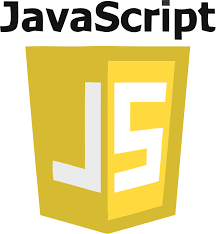“Review of Java Concepts” 4th Ed. by Wiley Publishing

Review of Java Script Concepts 4th Edition, by David Hsu. Wiley presents us with an intro to Java that presents its core concepts in a comprehensive way. Its author, Cay Horstmann, teaches at San Jose State University. I used it as textbook for my college courses and am happy to have discovered that his book has greatly aided the writing of my Java tutorial.
Consisting of 902 pages divided into 19 chapters, Review of Java Concepts is both well-organized and beginner-friendly. Mr. Horstmann’s work covers all of Java in a sequential, tutorial-like fashion; logically presenting the material in a way that permits even the clueless newcomer to follow along easily. At the same time, its topical arrangement makes for easy use of the table of contents or index. This renders the book useful not only for beginners but for intermediate and advanced Java coders as well.
The topics touched on are:
- Data types and objects
- Syntax for decisions and loops
- How to test and debug
- Proper design techniques
- Complex algorithms that recurse, sort, or both
- The book’s language is easy to understand, and avoids the extreme of being too technical by presenting the contents in a plain speaking and conversational style (a feature that is especially beneficial to newcomers), What this patient and strongly personal approach loses in conciseness is more than made up for with a very effective instructional feature – the formatting of the main points as “call-outs” in the margins of the text. This is extremely helpful for those not willing or able to absorb all the details, and something that also helped me to keep my tutorial’s material in focus.
Visualizations of code greatly speed up the learning process. I like the depiction of ListIterator as word processor, and the inclusion of boxes showing before-and-after variable states,.
End-of-section exercises are more practical than conceptual, not too difficult (my favorite kind, as this warms me up to learn quicker), and include useful content-retention goals. By cautioning the reader to be aware of common mistakes made by Java Script beginners, it helps newbies to avoid repeating many time-consuming errors. Author Horstmann’s teaching experience comes in handy here, affording us the many benefits of his insights into the beginning student’s mind.
The frequent fun-history factoids in this book offer the reader a much needed break from the hard work that goes into learning coding, while at the same time offering interesting informational “tidbits” such as a behind – -the-scenes look at RSA security. Also, there are useful tips about proper coding style, categorized under:
- “How to” – detailed step-by-step instructions for completing a task.
- “Quality tips” – formal guides to best practices.
- “Productivity hints” – similar to quality tips but for software tools. For example, and I much agree, there is a hint that recommends that we should not settle for just memorizing the Java library, but instead learn to use the API documentation that explains the library.
- “Advanced topics” – introductions to more difficult material.
- “Random facts” – fun history factoids (see above),including “The first bug” and “software piracy.”
The purpose of the book is to teach students basic programming concepts that are usable across multiple languages, concepts that once learned can easily be applied to other languages. The author chose Java as the base language to teach them in because of its relatively shallow learning curve. I do wonder, however, if Java really is the best language with which to begin a programming career, if it is the best basis for learning programming concepts, and how deep to go into learning Java before going over to a new language.
In closing, I would say that Java Script Concepts 4th Edition is:
- Comprehensive (if not overly concise) on important topics
- Well-organized
- Beginner-friendly
